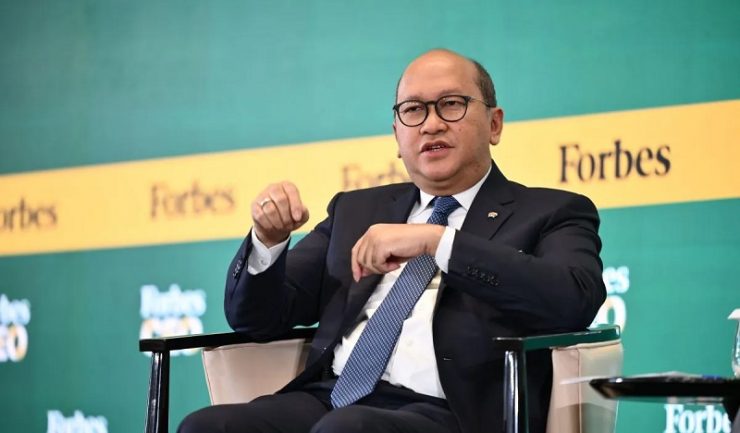DANANTARA Investment Management Agency (BPI) CEO Rosan Roeslani stated that member banks of the State-Owned Banks Association are being cautious in disbursing loans from the IDR200 trillion government fund placement.
“We are always careful. These are public funds, government funds, and we always carefully evaluate them,” Rosan said after attending the Forbes CEO Global Conference in Jakarta on Tuesday (10/14), 2025.
Rosan explained that each bank has its own approach and credit assessment when disbursing loans, with varying terms.
However, Rosan highlighted the current government fund placement scheme, which is a deposit on call (DOC) with a tenor of only six months. According to him, this duration is too short to support long-term financing.
“We hope the loans won’t be limited to six months. If we provide long-term loans, there is the potential for mismatches,” he explained.
Call deposits are a form of short-term savings held by customers with banks that can be withdrawn at any time with prior notice, usually within one to three days.
Furthermore, Rosan also hopes that the interest rate on government fund placements can be lower than the current 3.8% rate. He hopes the rate won’t be 4%, or the current 3.8%. The average deposit rate in our banking system is 2.44%. Therefore, he hopes it can be lower than that.
With this adjustment to the scheme, Rosan believes banks can disburse loans at lower interest rates, especially to the MSME and cooperative sectors. This is believed to strengthen the national economy.
Rosan expressed his appreciation to the Ministry of Finance for the fund placement. Previously, the government allocated IDR200 trillion to five State-Owned Banks member banks: Mandiri received IDR55 trillion, BRI IDR55 trillion, BNI IDR55 trillion, BTN IDR25 trillion, and BSI IDR10 trillion.
Responding to concerns regarding the duration of the fund placement, Finance Minister Purbaya Yudhi Sadewa previously confirmed that the government would not withdraw the IDR200 trillion in funds placed in State-Owned Banks banks, even though it had been more than six months.
“Essentially, it’s like putting money in a bank for as long as you like, so it circulates in the economy,” Purbaya said at the Presidential Palace Complex in Jakarta recently. [antaranews]
















